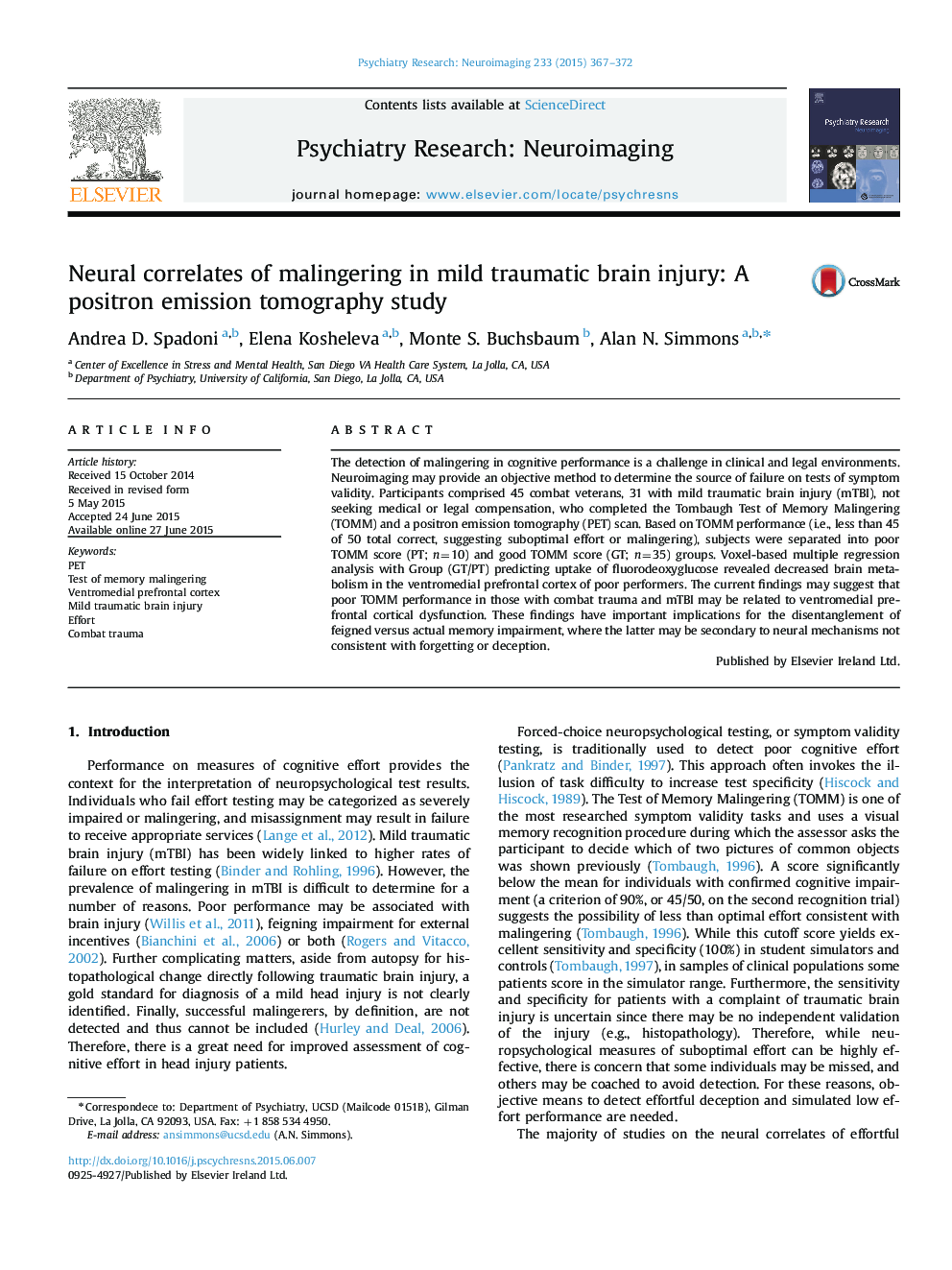| کد مقاله | کد نشریه | سال انتشار | مقاله انگلیسی | نسخه تمام متن |
|---|---|---|---|---|
| 334724 | 546653 | 2015 | 6 صفحه PDF | دانلود رایگان |
• Study of brain metabolism during symptom validity tests in combat veterans.
• Poor performance was related to decreased ventromedial prefrontal signal.
• Disturbed neural mechanisms were not consistent with deception.
The detection of malingering in cognitive performance is a challenge in clinical and legal environments. Neuroimaging may provide an objective method to determine the source of failure on tests of symptom validity. Participants comprised 45 combat veterans, 31 with mild traumatic brain injury (mTBI), not seeking medical or legal compensation, who completed the Tombaugh Test of Memory Malingering (TOMM) and a positron emission tomography (PET) scan. Based on TOMM performance (i.e., less than 45 of 50 total correct, suggesting suboptimal effort or malingering), subjects were separated into poor TOMM score (PT; n=10) and good TOMM score (GT; n=35) groups. Voxel-based multiple regression analysis with Group (GT/PT) predicting uptake of fluorodeoxyglucose revealed decreased brain metabolism in the ventromedial prefrontal cortex of poor performers. The current findings may suggest that poor TOMM performance in those with combat trauma and mTBI may be related to ventromedial prefrontal cortical dysfunction. These findings have important implications for the disentanglement of feigned versus actual memory impairment, where the latter may be secondary to neural mechanisms not consistent with forgetting or deception.
Journal: Psychiatry Research: Neuroimaging - Volume 233, Issue 3, 30 September 2015, Pages 367–372
